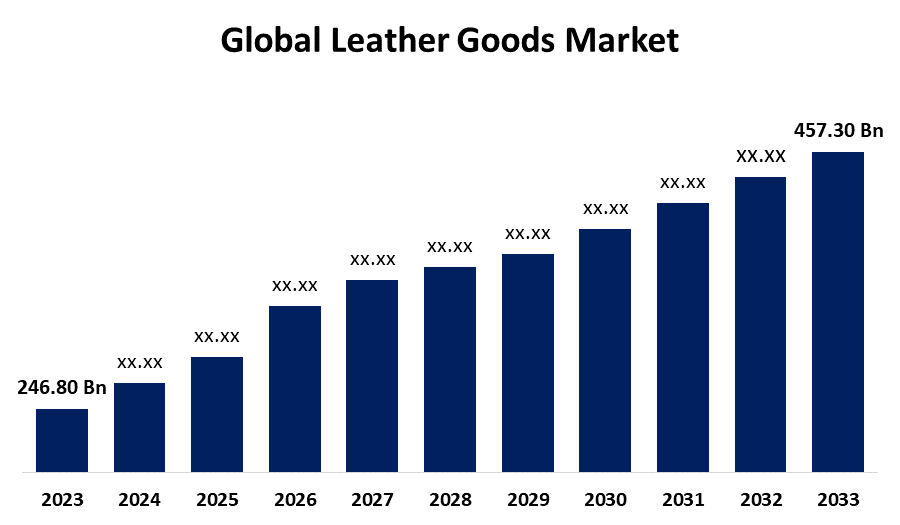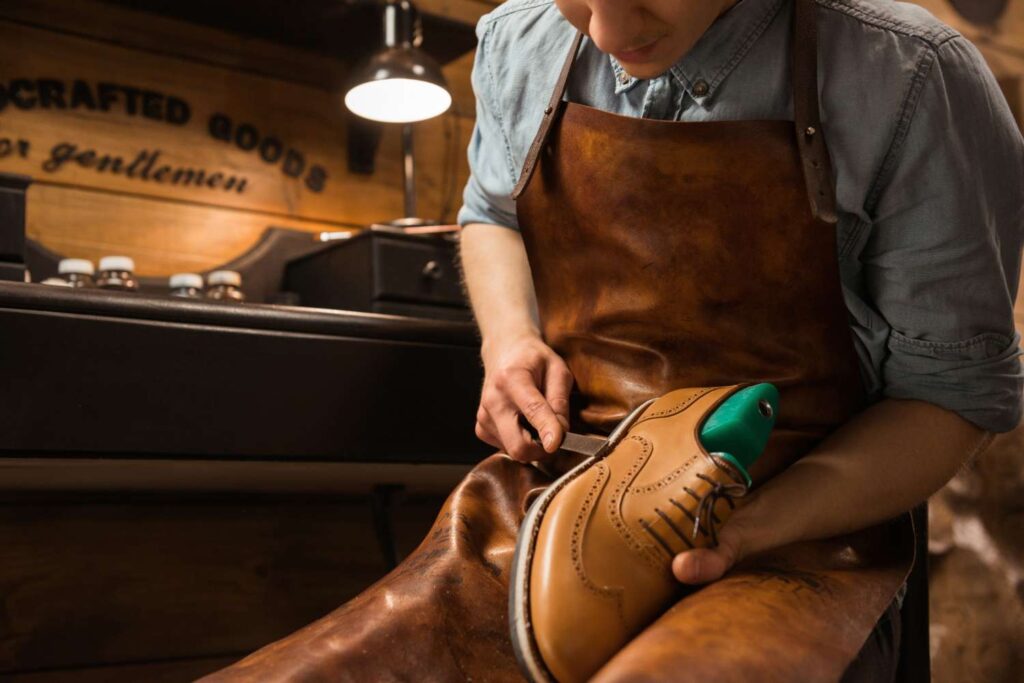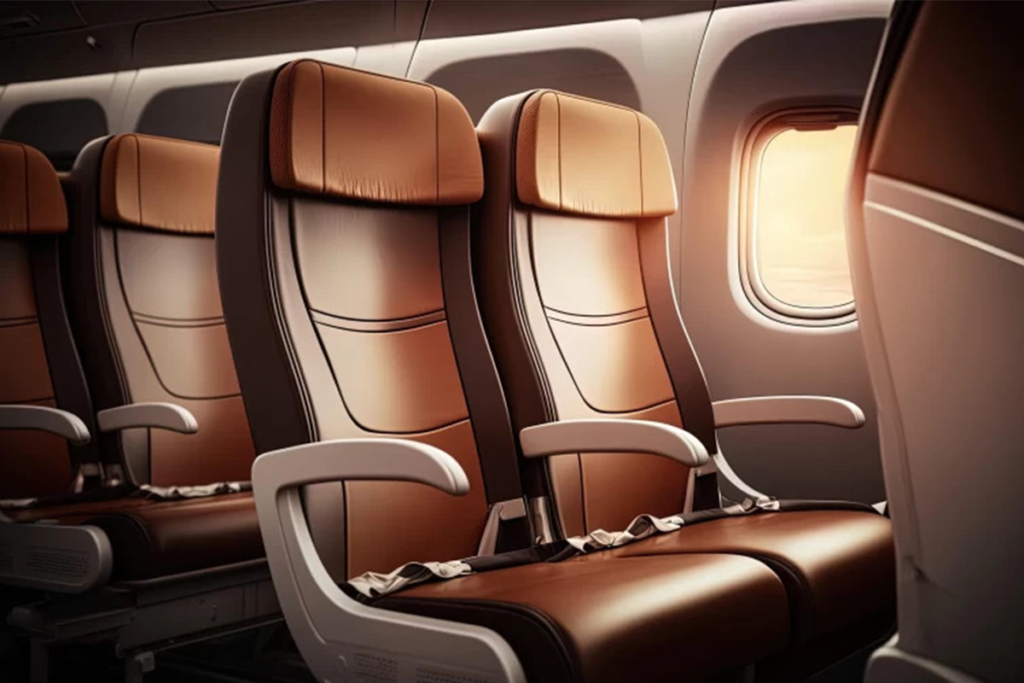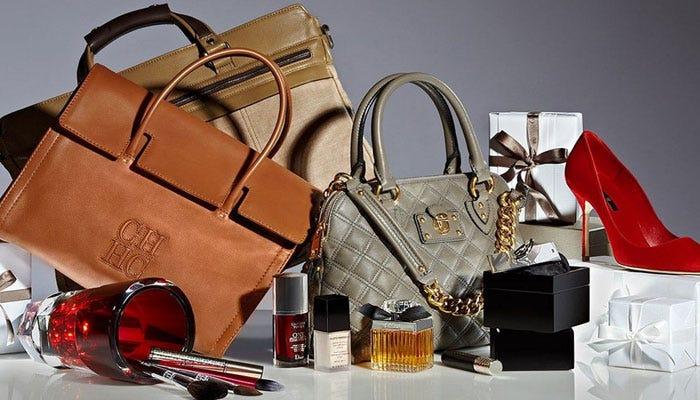Leather is more than just a material; it’s a timeless expression of craftsmanship, strength, and elegance. From the rugged boots worn by workers to the fine upholstery in luxury cars, leather has shaped countless industries across generations. Today, as sustainability and quality gain more importance than ever before, leather remains one of the most valued and versatile materials on the planet.
Both Pakistan and Europe play leading roles in this global narrative. Pakistan is renowned for its skilled tanning craftsmanship and export-quality leather, while Europe, with its rich heritage of fashion, design, and automotive innovation, sets global trends in leather consumption. Together, they form a bridge between tradition and technology, a connection that defines the future of the leather world.
In this article, we’ll explore the top industries that rely heavily on leather in both Pakistan and Europe, how they utilise it, and why demand is expected to continue growing in 2025 and beyond.
The Significance of Leather in the Global Market
Leather isn’t just an aesthetic choice; it’s a statement of endurance, style, and class. From natural cowhide to exotic varieties, the durability, flexibility, and breathability of leather make it irreplaceable for industries that demand both beauty and strength.
According to trade data, Pakistan ranks among the top 10 leather producers in the world, with exports reaching high-end markets in Italy, Germany, France, and the UK. Europe, on the other hand, remains a design hub for high-quality leather goods, influencing global trends.
Leather is vital because:
- It provides long-lasting material quality for luxury and everyday use.
- It symbolizes premium craftsmanship and timelessness.
- It offers sustainable use when sourced and processed responsibly.
- It supports millions of jobs from tanners and artisans to designers and exporters.
For Akram Tannery, these facts are more than just numbers. They represent decades of tradition, experience, and dedication to creating leather that meets international standards while preserving the heritage of Pakistani craftsmanship.

1. The Fashion and Apparel Industry
When people think of leather, fashion is usually the first image that comes to mind and for good reason. From sleek jackets and elegant handbags to polished belts and stylish footwear, leather is the heart of global fashion.
Leather in Pakistani Fashion
Pakistan has become a major player in the fashion and apparel industry, especially in leather garments. Local tanneries like Akram Tannery supply full-grain, pull-up, and aniline leather to fashion houses and exporters who turn these materials into world-class leather jackets, coats, and bags.
Cities like Sialkot, Karachi, and Lahore have become key centres for leather apparel manufacturing. Pakistani leather goods are exported to Germany, Italy, Spain, and the UK, where they compete with top European brands.
Fashion designers in Pakistan increasingly prefer eco-friendly tanning methods, a shift that aligns with global demand for sustainable fashion. Vegetable-tanned leather, known for its natural hues and earthy appeal, has become a signature choice.
Leather in European Fashion
Europe remains the epicentre of luxury leather fashion. Brands like Gucci, Louis Vuitton, and Prada rely on fine European leather for their exclusive collections. Italy, in particular, leads the market with tanneries in Tuscany producing some of the world’s best hides.
The European fashion industry values leather for its ability to age beautifully, a quality that synthetic materials simply cannot replicate. High-end artisans focus on detail, hand-stitching, and timeless elegance, ensuring that every leather item tells its own story.
In Europe, leather isn’t just worn; it’s experienced. It represents heritage, sophistication, and craftsmanship principles that resonate strongly with Akram Tannery’s philosophy of quality and authenticity.
2. The Footwear Industry
Leather and shoes are inseparable. The footwear industry is one of the largest consumers of leather worldwide, accounting for nearly 50% of all leather produced globally.
Pakistan’s Leather Footwear Exports
Pakistan’s footwear sector is rapidly evolving, with brands focusing on comfort, durability, and international aesthetics. Sialkot and Lahore are leading centres of leather shoe manufacturing, exporting to markets like the UK, France, and the Netherlands.
Pakistan’s leather shoes, boots, and sandals are known for:
- Long-lasting durability
- Fine stitching and finishing
- Natural breathability
- Affordable luxury appeal
Akram Tannery supplies high-quality finished leather to footwear exporters and local brands alike. The tannery’s pull-up and nubuck leathers are especially valued for their rugged yet stylish texture, perfect for both casual and formal footwear.
European Leather Footwear
Europe’s footwear industry thrives on tradition. Italy, Spain, and Portugal are globally recognized for their shoemaking heritage. Italian brands like Tod’s and Salvatore Ferragamo have built empires on their mastery of leather.
European consumers demand shoes that last, feel comfortable, and express individuality. This is where the authenticity of leather comes into play; every pair develops its own unique patina over time, telling a story of use and life.
The mutual trade between Pakistan and Europe strengthens both markets. Pakistani tanneries provide premium raw material, while European designers transform it into world-renowned fashion.

3. The Automotive Industry
When you step inside a luxury car, the smell of leather immediately creates a sense of comfort and prestige. Leather interiors have become synonymous with quality and exclusivity in the automotive sector.
Pakistan’s Leather and Car Interiors
Although Pakistan’s automotive industry is still developing, leather plays a growing role in car seat manufacturing and interior design. Local tanneries provide high-quality automotive-grade leather that meets international safety and aesthetic standards.
Leather seats, steering wheel covers, and dashboards not only enhance comfort but also improve the overall value of vehicles. As Pakistan’s economy grows and the demand for locally assembled cars increases, the automotive leather segment continues to expand.
Europe’s Luxury Automotive Sector
Europe is home to the world’s most prestigious car manufacturers, BMW, Mercedes-Benz, Porsche, and Ferrari, all of which use premium leather interiors. European tanneries specialize in high-performance automotive leathers that are flame-resistant, UV-protected, and soft to the touch.
Leather in the European automotive market is not just about luxury; it’s about craftsmanship and sustainability. Modern tanneries in Germany and Italy now focus on chrome-free tanning and eco-friendly dyeing processes, values that align closely with Akram Tannery’s sustainable approach.
The future points toward hybrid materials combining natural leather with recycled components, but genuine leather remains irreplaceable for its comfort, breathability, and timeless allure.
4. The Furniture and Interior Design Industry
Leather furniture tells a story of elegance and comfort. From executive office chairs to home lounges, leather remains the top choice for premium interiors.
Leather Furniture in Pakistan
Pakistan has a thriving furniture industry, particularly in cities like Chiniot, Karachi, and Lahore, where artisans create masterpieces from both wood and leather. The demand for leather sofas, office chairs, and headboards has seen significant growth, especially in the hospitality and corporate sectors.
Akram Tannery works with several furniture manufacturers who require consistent texture, colourfastness, and durability in their upholstery leather. Their products are used in both domestic and export-grade furniture production.
Europe’s Interior Leather Design
Europe’s interior design industry is where creativity meets functionality. Leather is used not only for furniture but also for wall panels, flooring accents, and architectural designs in luxury spaces.
European designers value premium aniline and semi-aniline leathers for their natural grain and softness. They integrate these into modern homes, offices, and even boutique hotels to create an atmosphere of warmth and sophistication.
This deep appreciation for quality leather has kept the European interior design industry closely tied to trusted suppliers, including those in Pakistan who deliver internationally certified materials.
5. The Aviation and Transportation Sector
Beyond cars and furniture, leather also plays a vital role in aviation and transport. Aircraft seats, yacht interiors, and train cabins often feature high-performance leather because of its durability, safety, and luxury appeal.
Pakistan’s Emerging Leather Exports for Aviation
Pakistan’s leather manufacturers have begun exploring this specialized niche. By focusing on flame-retardant and abrasion-resistant leathers, tanneries like Akram Tannery aim to supply international aviation companies.
These leathers are engineered for extreme durability, comfort, and compliance with international safety standards.
Europe’s Aviation Leather Industry
European suppliers dominate the global aviation leather market. The UK, France, and Germany are home to some of the top aviation upholstery brands that supply leather to Airbus, Lufthansa, and British Airways.
The demand is expected to rise as airlines continue upgrading their fleets for comfort and aesthetics. Pakistani exporters who meet these standards are finding exciting opportunities to collaborate with European firms.

6. The Sports Goods Industry
Leather has long been associated with sports equipment, from cricket balls and footballs to gloves and gear.
Sialkot: The Heart of Leather Sports Manufacturing
Sialkot, Pakistan, is a global hub for sports goods manufacturing. Companies here produce leather footballs, boxing gloves, and protective gear that are exported to top international brands like Adidas and Nike.
Akram Tannery provides specialized grain and split leathers that are flexible, shock-absorbent, and long-lasting, ideal for professional-grade sports products.
Europe’s Role in Sports Leather
While Europe doesn’t produce large volumes of sports leather, it imports high-quality materials for its leading sports brands. European quality checks are strict, ensuring that every product meets the highest safety and performance standards.
Pakistani tanneries, by maintaining compliance with REACH and ISO certifications, continue to be trusted suppliers for this demanding sector.
7. The Luxury Accessories Industry
Wallets, belts, gloves, and handbags leather accessories are more than practical items; they are symbols of class and individuality.
Pakistani Leather Accessories
Pakistan’s skilled artisans craft some of the most beautiful leather accessories in the world. Handmade wallets, belts, and bags produced from pull-up and vegetable-tanned leather have found strong demand both domestically and in export markets.
Akram Tannery’s leather is often chosen by brands that focus on handcrafted goods, ensuring every product looks and feels authentic.
Europe’s Luxury Market
Europe dominates the global luxury accessories market, with brands like Hermès, Bottega Veneta, and Chanel setting the standards for craftsmanship. These brands rely on top-tier leather that is supple, consistent, and environmentally friendly.
European buyers appreciate authenticity and traceability, values that Akram Tannery upholds through sustainable sourcing and modern production processes.

The Leather Industry’s Future: Sustainability and Innovation
The future of leather is being rewritten through innovation. Consumers now want leather that’s ethically sourced, eco-tanned, and traceable.
Pakistan’s leather sector is responding fast. Akram Tannery has adopted eco-conscious practices such as water recycling, chrome-free tanning, and biodegradable finishes, setting new benchmarks in responsible production.
Europe, meanwhile, continues to lead in leather innovation, experimenting with bio-based tanning agents, plant extracts, and minimal-waste production.
The collaboration between Pakistani expertise and European technology will define the next chapter of global leather manufacturing, one that blends tradition with responsibility.
Final Thoughts
Leather isn’t just a product; it’s a culture, a heritage, and a bridge between industries and continents. From fashion runways in Milan to workshops in Sialkot, leather carries stories of human skill, endurance, and passion.
For Akram Tannery, serving industries across Pakistan and Europe isn’t just business, it’s a commitment to excellence. By offering premium-quality leathers that meet the highest international standards, Akram Tannery continues to empower manufacturers, designers, and brands who understand that quality leather means lasting value.
In a world chasing fast trends, leather stands tall, timeless, durable, and undeniably elegant. And as industries evolve, one thing remains certain: the demand for real, authentic leather will never fade.
FAQs
1. Which industries use the most leather in Pakistan?
The leading industries include fashion and apparel, footwear, furniture, and sports goods. Pakistan’s leather exports are particularly strong in garments and shoes.
2. How does Europe’s leather industry differ from Pakistan’s?
Europe focuses on design, luxury, and innovation, while Pakistan specializes in manufacturing and raw material production. Together, they complement each other’s strengths.
3. Is leather production in Pakistan sustainable?
Yes. Many tanneries, including Akram Tannery, are now using eco-friendly tanning methods and ensuring compliance with international environmental standards.
4. Which European countries import the most leather from Pakistan?
Italy, Germany, Spain, and the United Kingdom are major importers of Pakistani leather goods and raw materials.
5. What makes Akram Tannery’s leather stand out?
Akram Tannery combines traditional craftsmanship with modern technology, delivering premium-quality leather that meets global standards of durability, texture, and sustainability.
6. Will the demand for leather continue to grow in the future?
Yes. While synthetic alternatives exist, genuine leather’s comfort, elegance, and longevity ensure its ongoing relevance in fashion, automotive, and interior industries.
